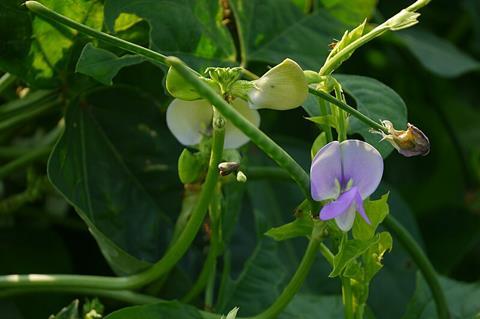A pioneering study reveals how cowpea plants respond to leaf-mining fly attacks by altering their root-associated microbiota. The research shows that leafminer infestation significantly changes the rhizosphere microbiome, enriching beneficial nitrogen-fixing bacteria, especially Bradyrhizobium species.

These microbial changes enhance the plant’s defense mechanisms and overall performance under stress. The study highlights the critical role of root-associated microbes in plant resilience, providing new insights into natural plant defense strategies and opening avenues for sustainable agricultural practices.
READ MORE: Synthetic communities slash herbicide use for weed control
READ MORE: Researchers identify microbes that help plants thwart parasite
Plants encounter various biotic stresses, with insect herbivory being particularly destructive. Traditional chemical insecticides used to combat these pests pose environmental and health risks. Recent studies suggest that plants can recruit beneficial microbes to help mitigate these stresses. Understanding these natural defense mechanisms is crucial for developing eco-friendly pest control methods. Due to these challenges, there is a growing need for deeper research into how plant-microbe interactions can enhance plant resilience and provide sustainable alternatives to chemical insecticides.
The study (DOI: 10.1093/hr/uhae121), conducted by researchers from Zhejiang University and published in Horticulture Research on April 26, 2024, explores how leaf-mining fly attacks on cowpea plants alter the root-associated microbiota. Using advanced sequencing techniques, the research uncovers significant shifts in microbial community structure and function in response to herbivory stress.
The study underscores the crucial role of root-associated microbiomes in enhancing plant defense mechanisms. Upon leafminer infestation, cowpea plants exhibited a significant enrichment of nitrogen-fixing bacteria, particularly Bradyrhizobium species, in their rhizosphere. This shift in the microbial community structure and function was uncovered using advanced sequencing techniques.
The enriched microbes were associated with improved plant performance and elevated levels of protease inhibitors, which are critical in reducing leafminer fitness. The results suggest that plants can actively recruit beneficial microbes to bolster their defenses against above-ground insect herbivores. This recruitment aids in the plant’s stress response, improving resilience and overall health. These insights into plant-microbe interactions provide a promising foundation for developing sustainable agricultural practices that leverage natural defense strategies, reducing the need for harmful chemical insecticides.
Dr. Ying Zhou, a leading author of the study, stated: “Our findings reveal a novel aspect of plant defense, demonstrating how root-associated microbiota play a critical role in enhancing plant resilience against insect herbivores. This research opens new avenues for sustainable agricultural practices.”
Understanding the interaction between plants and their root-associated microbiomes offers promising strategies for developing eco-friendly pest control methods. By leveraging these natural plant defense mechanisms, we can reduce reliance on chemical insecticides and improve crop productivity and sustainability.







No comments yet